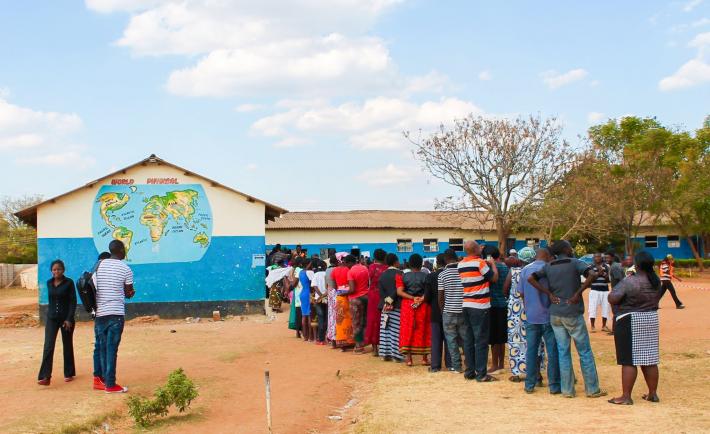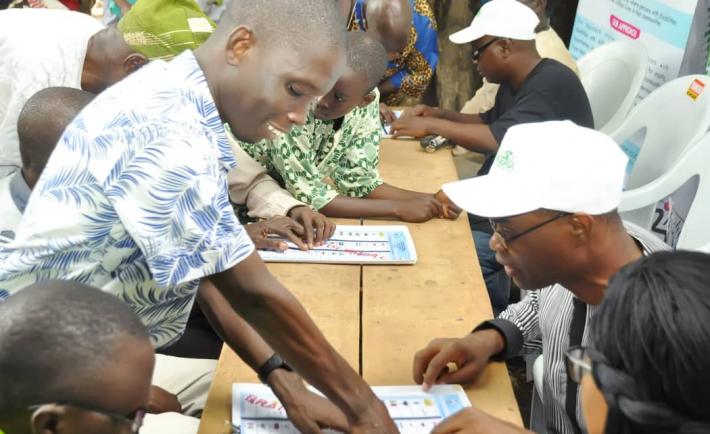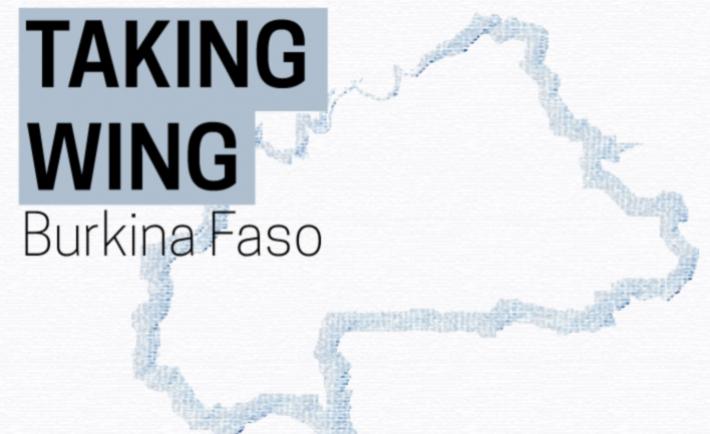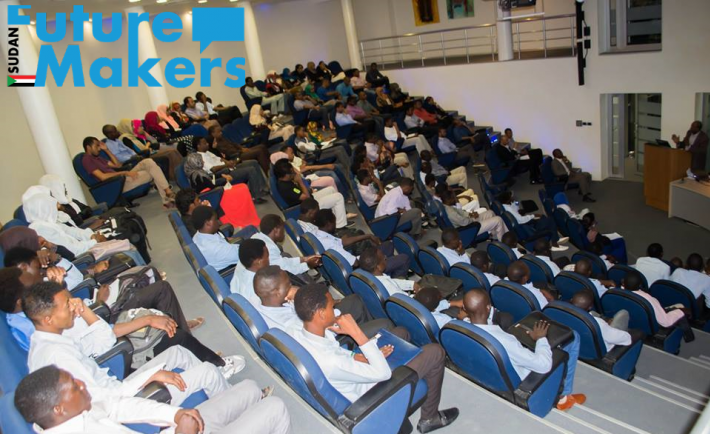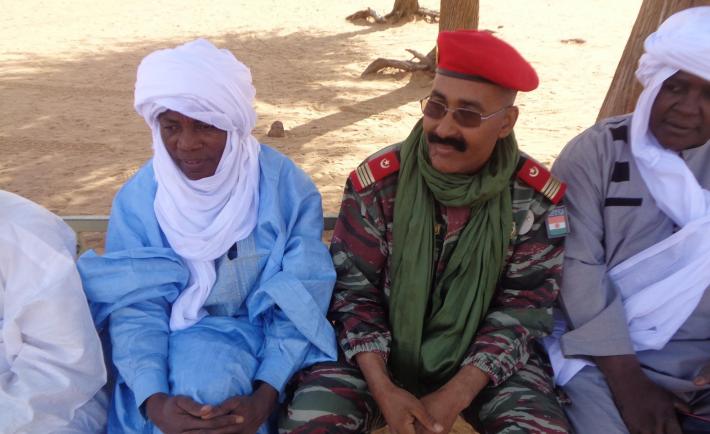As young people from different political parties, we have learned that violence should not be part of us and we should denounce violence at all costs. We must use every opportunity and avenue to advocate for youth-sensitive policies and political space that provides respect for freedom of association, freedom of movement, freedom of the press and access to information. We must become aware of our rights and opportunities to participate in decision-making so we can continue to shape our futures together.
Taking Wing: Being a Peace Ambassador in Zambia
The Success of Nigeria's Inaugural Braille Ballot Guides
In advocating for strong democratic institutions around the world, it is easy to overlook the rich diversity of democratic traditions across nations. In the United States, presidential hopefuls descend on Iowa every four years to grill steaks for eager caucus-goers. In London, commuters tune to BBC Radio to hear the prime minister and opposition leader spar on issues of the day. And in Nigeria, voters press their thumbs into ink pads, locate the name and party of their chosen candidate, and leave a thumbprint to mark their democratic choice.
Taking Wing: Creating lasting change in Burkina Faso
There is a widespread belief among young people in Burkina Faso that the current political class lacks a credible vision that takes into account the aspirations of the nation’s youth. The only way to solve this is for young people to stand for election, and to propose new and alternative ideas for the development of our country. This is particularly true when it comes to the nation’s long-term economic well-being – which will affect the lives and futures of the nation’s young citizens the most. But youth are also concerned about other pressing issues, such as the independence of the judicial system and a lack of security from extremist groups (especially in the northern regions). There is no single, defining “youth issue,” nor is there a single youth perspective on the challenges our country faces. Young people must have seats at the table so that we can play an active role in building our own future.
Using Open Data to Verify Information in Elections
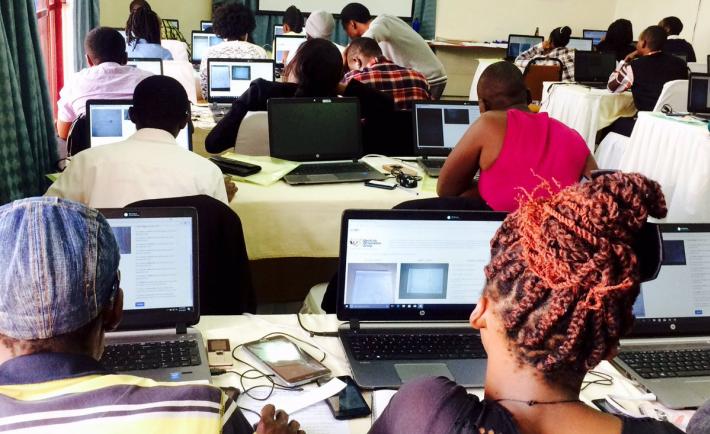
The Election Observation Group (ELOG) in Kenya used a unique data entry tool to match observer-captured images to official election documents
The August 2017 presidential election in Kenya was clouded by accusations of fraud and doubts about the accuracy of results posted on the Independent Elections and Boundary Committee (IEBC) website. Some groups alleged that information from the official polling-station-level presidential results forms (Form 34A) posted on the website may have been altered during the transmission of the forms from polling stations to the national level. The Kenyan Supreme Court’s ultimately annulled the August elections and called for a fresh presidential contest in October 2017. To promote accountability and transparency, NDI provided technical assistance to the Elections Observation Group (ELOG) to deploy 766 observers to polling stations across the country to systematically observe the fresh elections. Election observers were also instructed to take pictures of the completed Form 34As at their polling stations and send the images to the organization through designated WhatsApp numbers to verify the credibility of the data. Five-hundred and forty observers submitted clear photos of the Form 34As from the polling stations. With technical support from NDI, ELOG developed an online system to compare these forms with their official online counterpart.
No Party to Violence: An Assessment from Côte d’Ivoire
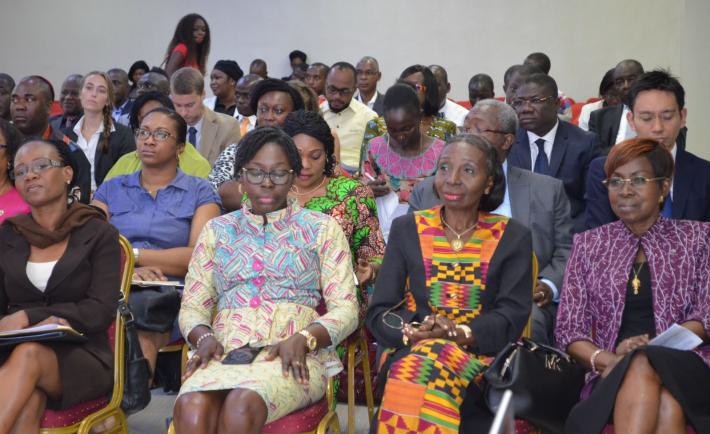
Representatives of Ivorian and international institutions, embassies, political parties and civil society join NDI’s cross-party exchange to discuss key actions that could be taken to address and mitigate violence against women in political parties.
In Côte d’Ivoire, as we have found in many other places around the world, violence against women in politics has long been hidden, unknown, unrecognized, ignored or considered part of the "normal" practice of politics or as the "cost of politics." This is true for women across political sectors, including as voters, candidates, activists and elected or appointed officials. While political parties in Côte d’Ivoire serve as critical pathways for women’s political participation and engagement, including for young or new politicians, they continue to be male-dominated institutions, which allows and enables violence against women in their ranks. Because women believe that speaking out will at best have no real impact, and at worst make their situations worse, the violence women face within political parties has also gone largely unreported.
A View from Election Eve in Liberia: Behind the Scenes of an International Election Observation Mission
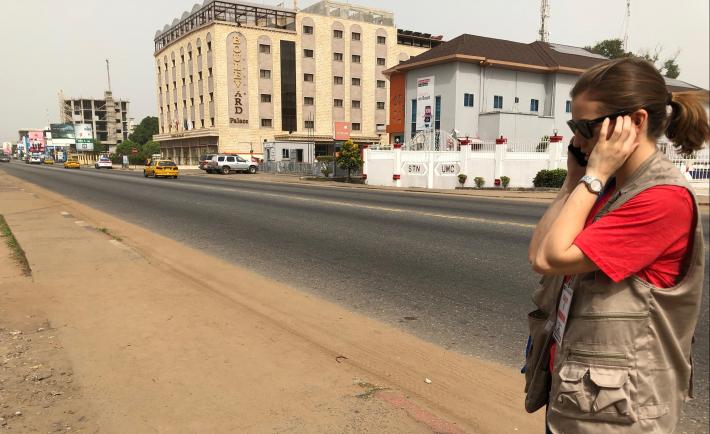
The author on Tubman Boulevard in Monrovia struggling to hear a call about logistics from fellow NDI staff while running other Election Day errands (photo credit: Madeline Wilson)
Two former presidents and a former foreign minister sat in a conference room while I searched for a hat. It sounds like the beginning of a bad joke, but it was the very real start to December 25, 2017, the eve of the Liberian presidential runoff.
Nigerian Disability Advocates Conduct First-Ever Election Accessibility Audits
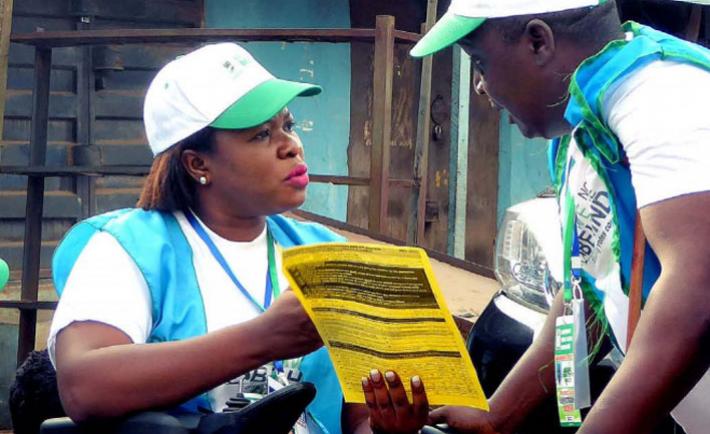
IFA's Grace Jerry (left) discusses the audit checklist with another Access Nigeria observer during an election day deployment.
In Nigeria, there is a dearth of reliable data on the number of people with disabilities, let alone the challenges they face participating in elections. In its World Report on Disability, the World Health Organization estimates that 15 percent of the world’s population lives with some form of disability. Based on this report, IFA approximates that there are 25 million Nigerians with disabilities.
For this reason, disability rights organization and NDI partner Inclusive Friends Association (IFA) audited polling unit accessibility during off-cycle gubernatorial elections in Edo (September 2016) and Ondo (November 2016) states, using a sample-based observation deployment methodology similar to parallel vote tabulation. The audits assessed the availability of handrails, ramps, braille or tactile ballots, written voting instructions and sign language interpreters. Armed with these newfound statistics, disability rights advocates such as IFA are now better equipped to make advocacy demands on decision makers to address barriers to the political participation for persons with disabilities in Nigeria.
My Dreams for the Sudan Future Makers
When I first came to NDI as a Mandela Fellow and was introduced to its goals and activities, I realized that I had come to the right place to help me achieve my dream of changing Sudan.
The Sudan that I grew up in suffers from bad governance, poor social services and inadequate infrastructure. International intervention did not help. Instead, the world was so angry with the Sudan that the Security Council imposed political and economic sanctions that harmed the peaceful majority more than the trouble makers and the few in power. It was in this context that we decided to take the positive step of establishing the Sudan Future Makers Organization.
Central African Republic: Can Legitimacy Last?
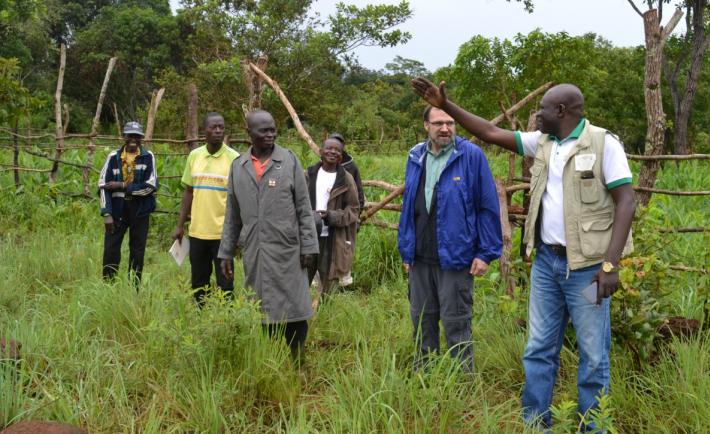
Alain Kinzinguere of NDI partner the Central African Human Rights League (right, gesturing) discusses the benefits of a community-built stockyard (background) with the village chief of Damara (left center in coat).
For more than a year after President Faustin Archange Touadera’s surprise runoff victory, the Central African Republic has been consolidating its nascent democratic institutions, including new ones called for in the 2015 constitution. In contrast with previous governments and legislatures that resulted from flawed elections, no elections, or coups d'etat, Mr. Touadera and the elected National Assembly appear to enjoy popular legitimacy—for now.
This legitimacy, however, is now undergoing its first serious test. A recurring theme I heard from Central Africans during a recent visit is that they expect their political leaders and the international community to put an end to the rising violence committed by armed groups in 14 of the country’s 16 provinces.
Communication Between Citizens and Niger Government Key to an Environment Less Conducive to Violent Extremism
Northern Niger has long been marked by instability and tense relations between citizens and the government, including military forces. The Agadez and Tahoua regions, which harbor the country’s vast uranium resources and most important mining sites, have repeatedly experienced conflicts among traditional pastoralist societies, growing urban communities, mining companies, and central authorities over issues such as the use of land and water resources and the environmental impact of the mining industry. These challenges have been exacerbated by an increasingly volatile security situation in the Sahel -- an arid region of Sub-Saharan Africa south of the Sahara desert. At the crossroads of century-old trade routes, Agadez has become a center for the trafficking of migrants to Europe, arms and drugs. Since the eruption of Mali’s armed conflict and increased incursions of Islamist terrorists into Nigerien territory, the government of President Mahamadou Issoufou has stepped up the presence of military forces in the north. Meanwhile, many citizens feel disenfranchised and frustrated over what they perceive as the government’s failure to provide basic services. Prior to Niger’s February 2016 legislative elections, NDI organized a series of forums where citizens discussed the priorities in their communities with political parties and their local candidates.The forums and ensuing meetings revealed increasing tensions between Niger’s military and the population in the area.

